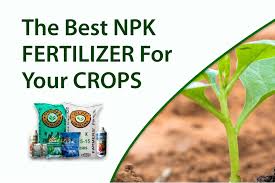
Aug . 15, 2024 17:36 Back to list
Top Organic Fertilizers for Your Garden to Ensure Healthy and Thriving Plants All Season Long
The Best Organic High-Quality Garden Fertilizers for a Thriving Garden
Gardening enthusiasts understand that the foundation for a lush and fruitful garden lies in the soil. The nutrients in the soil are crucial for the growth of plants, and that’s where the importance of a high-quality organic fertilizer comes into play. Organic fertilizers not only enhance soil fertility but also promote a healthy ecosystem in your garden. In this article, we’ll explore why organic fertilizers are essential, the different types available, and how to choose the best one for your garden.
Why Choose Organic Fertilizer?
Organic fertilizers are derived from natural sources, such as plant and animal materials, which means they are often free from synthetic chemicals. This is an advantageous feature for gardeners looking to cultivate vegetables, fruits, and flowers without harmful substances. Here are some benefits of using organic fertilizers
1. Soil Health Organic fertilizers enrich the soil with organic matter, improving its structure, aeration, and water retention. This leads to enhanced microbial activity, which is essential for nutrient breakdown and availability.
2. Nutrient Release Unlike synthetic fertilizers, which can quickly lead to nutrient leaching and potential harm to the environment, organic fertilizers release nutrients slowly over time. This ensures a steady supply of nutrients, promoting healthy and sustained growth in plants.
3. Environmental Impact Using organic fertilizers minimizes the risk of water contamination caused by runoff, which is a common issue with chemical fertilizers. It also supports biodiversity, fostering a healthier ecosystem in your garden.
Types of Organic Fertilizers
There are various types of organic fertilizers, each with unique properties and benefits. Here are some of the most common options
1. Compost Homemade compost is one of the best organic fertilizers. It is made from decomposed plant material and kitchen scraps, providing a nutrient-rich amendment to soil. Compost not only supplies nutrients but also enhances soil structure.
high quality best garden fertilizer organic

2. Manure Animal manure, particularly from herbivores like cows, horses, and sheep, is high in nutrients. However, it’s essential to compost manure before application to reduce pathogens and odor, ensuring it’s safe for the garden.
3. Fish Emulsion This liquid fertilizer is derived from fish remains and is rich in nitrogen, phosphorus, and potassium. It’s particularly effective for promoting leafy growth in plants.
4. Bone Meal High in phosphorus, bone meal is excellent for flowering plants and root development. It encourages robust blooms and enhances overall plant vigor.
5. Seaweed Seaweed fertilizers contain trace minerals and growth hormones that promote healthy plant growth. They can be applied as a liquid or used in powder form.
Choosing the Best Organic Fertilizer for Your Garden
When selecting an organic fertilizer, consider the specific needs of your plants and soil. Conducting a soil test can help you understand nutrient deficiencies and pH levels. Here are some tips for choosing the right fertilizer
- N-P-K Ratio Check the nitrogen (N), phosphorus (P), and potassium (K) ratio on the packaging. Different plants have varying nutrient requirements; for instance, leafy greens benefit from higher nitrogen, while flowering plants need more phosphorus.
- Application Method Consider how you want to apply the fertilizer. Some are best applied as granular products, while others work better in liquid form.
- Certified Organic Look for products that are certified organic if you're keen on adhering to organic gardening standards. This ensures the fertilizer meets specific organic farming criteria.
In conclusion, high-quality organic fertilizers are vital for creating a thriving garden. They enhance soil health, promote sustainable growth, and reduce environmental impact. By understanding the various types of organic fertilizers and how to choose the best one, gardeners can cultivate a lush, productive garden that supports both plants and the ecosystem. Happy gardening!
-
Premium Organic Manure Compost for Eco Gardens
NewsAug.01,2025
-
Organic 10-10-10 Fertilizer | Balanced Plant Nutrients
NewsJul.31,2025
-
Premium Amino Acid Fertilizer | Rapid Plant Growth Booster
NewsJul.31,2025
-
10 10 10 Fertilizer Organic—Balanced NPK for All Plants
NewsJul.30,2025
-
Premium 10 10 10 Fertilizer Organic for Balanced Plant Growth
NewsJul.29,2025
-
Premium 10 10 10 Fertilizer Organic for Balanced Plant Growth
NewsJul.29,2025
